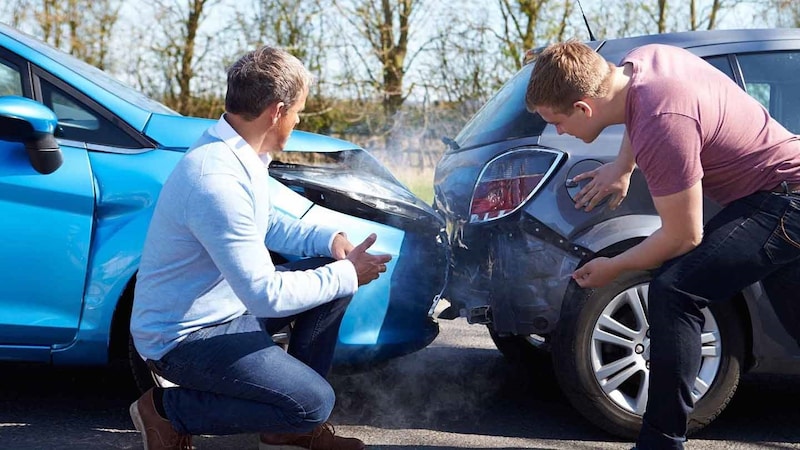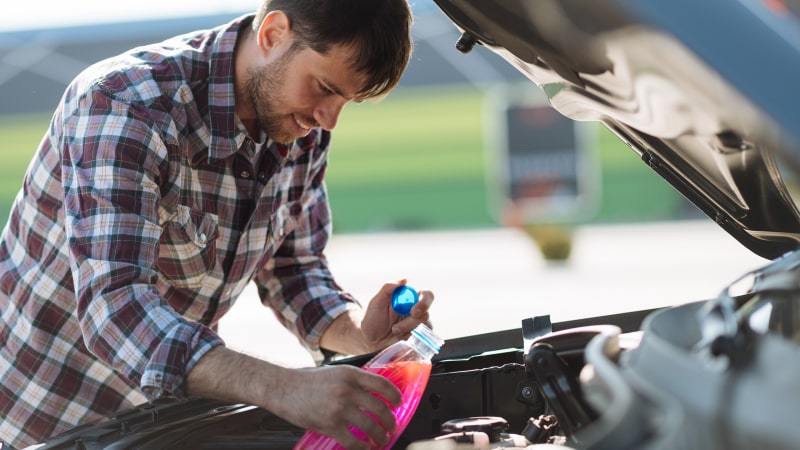Six basic car maintenance tips to help your vehicle live longer

Quick insights
- Regular oil chances help keep your engine lubricated and may help prevent long-term damage.
- Checking your tires and essential fluids regularly could improve safety and reduce the risk of expensive repairs.
- Following your owner’s manual and keeping your car clean might help protect your vehicle’s performance and overall production.
The world of car maintenance and general automotive knowledge can be a bit daunting. Beyond your classic driver's education course, it’s important to learn how to take care of your car so you can drive safely. Here are some basic car maintenance tips to help lengthen the life of your vehicle.
Why car maintenance is key
Car maintenance is key to keeping your car safe and on the road. Car maintenance can be expensive if you don’t stay on top of things. Ignoring warning lights, inspections and general upkeep can be detrimental to your vehicle.
On top of avoiding unnecessary expenses, keeping your car well-maintained can lengthen the life of your vehicle. This is especially true for pre-owned vehicles. Used cars come with wear and tear that can be cumbersome and expensive to deal with if ignored. Giving a used car a little extra care can go a long way in making the car run smoothly and last longer.
If you own your vehicle and maintain it over time, you could sell it down the line or even pass it off to a family member, all while knowing you’ve kept it in good condition. Every make and model are different and should be treated accordingly. Make sure to reference your owner's manual for information on how to take care of your specific vehicle.
The essential six car maintenance tips
- Oil changes: Scheduling regular oil changes is an important part of taking care of a car. Ignoring this for an extended period can ruin your engine. Oil lubricates and cools the engine. Without it, there can be build-up that affects the performance of the car and, eventually, its ability to run at all. Check with your car manufacture to see how often they recommend an oil change.The old standard was to change the oil every 3,000 miles, but modern lubricants allow for oil change intervals of 5,000 to 7,500 miles. If your car's engine requires full-synthetic motor oil, it might go as far as 15,000 miles between services. But, again, make sure to check the specifics for your car.
- Tire inspections: Check the general condition and air pressure of your tires often, especially before and after driving a long distance. Maintaining tire health is another easy way to keep your car lasting longer. Replacing a tire can be cumbersome but keeping them healthy will improve your car’s efficiency and your experience as a driver on the road.
- Fluid changes: Your transmission, radiator, brakes, power steering and windshield wipers all require fluids that must be frequently checked and maintained. The transmission fluid keeps your gears running smoothly. Your coolant helps maintain a stable engine temperature. Brake fluid keeps your brakes operating and running smoothly. If your brakes feel off, it can mean the brake fluid needs replacing. Power steering fluid keeps your wheel turning smoothly and finally, your windshield wiper fluid keeps your front window clean and safe for driving.
- Car washes: Keeping your car clean may seem like an obvious and simple task, but it’s an important part of keeping your car well-maintained. For example, if you live in an area with inclement weather, there may be dirt, salt or other build-up that could create a problem like premature rust. Keeping your car free of interior clutter can also help you remember where valuable information is located, like your user manual and registration, which comes in handy when you need it most during an emergency.
- Regular inspections: Getting your car inspected regularly is a good idea, and may be required by your state, county, or city. It ensures your car is safe enough to drive. If you aren’t due for an inspection but feel like something might be off, take it in to your local auto shop or dealership. If you are due for an inspection, make sure you get it done on time. Bringing your car in for inspection on time can help prevent any potential accidents or malfunctions down the road and keeps you in good standing with the law.
- When in doubt, check the manual: Your user manual can be helpful if you run into a problem on the road or if you’re curious about upkeep recommendations for your vehicle. When in doubt, this manual provides clear instructions on how to best take care of any problems that arise. Be sure to consult a professional mechanic as instructed by the user manual, or whenever you have questions.
End of the Road
Remaining proactive on the health of your vehicle is important for extending its life, quality and overall safety. The six car maintenance tips you see here are the essentials and if you keep on top of these, you and your car will be in good shape over the long term — while avoiding extra costs along the way.



